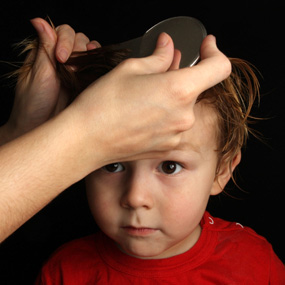
Of course you’re concerned. These are your kids we’re talking about, and they’ve already got it bad enough with this bout of head lice they’ve succumbed to. And even if we’re talking about you, that doesn’t mean we should be any less sympathetic.
So, you’re doing your due diligence. Not only are you trying to look into the ins and outs of many different prescription lice treatments, what the ingredients are, how they work and what some of the potential side effects are, you’re also doing much of the same with some of the non-prescription treatments and remedies out there.
There’s nothing wrong with that. In fact, it’s a complete misnomer that just because something can be easily obtained without a prescription that it’s all of a sudden not a drug. Nothing could be farther from the truth. There are, in fact, very many drugs that can be obtained over the counter and without a prescription. And, depending on who you are and what conditions you have, some may be not so good for you.
For the most part, over-the-counter lice shampoos and other forms of treatment do seem to be relatively safe. Most of the ingredients are relatively innocuous for most people. That said, there are still very many people that might not agree very well with some of the ingredients in lice shampoos, and it’s absolutely critical that most everyone check up on what these criteria are in order to sidestep a potential problem.
Understanding FDA Regulations
The U.S. Food and Drug Administration pretty much has a say in 99 percent of consumer goods you’re going to put in or on your body, and without their input, nothing reaches the shelves. This is a good thing to know, if only because it legitimizes how you classify the shampoos you’re using to kill lice. Just remember, they’re drugs.
Preexisting Medical Conditions
One of the biggest things to look out for when you’re checking up on whether a nonprescription drug is going to be good or bad for you is whether you have any of the preexisting medical conditions that case studies and clinical trials have proven to be a source of conflict between a person and a non-prescription drug.
For head lice shampoos, many of the most popular issues that make for potential dealbreakers are people with asthma, epilepsy, brain tumors, cancer or AIDS.
Fortunately, people with such issues are probably in very good touch with a wide variety of physicians, and many of them should be able to figure out a way for such people to get their hands on a non-prescription shampoo that will work for them.
Ingredients
Like nearly all drug-related products, there are some ingredients that are the main drivers of the product and some that are just simply there for cosmetic or other reasons.
That said, just because a drug isn’t necessarily “doing anything” per se doesn’t mean that it can’t potentially clash with you or any problems you’re having.
Isopropyl alcohol might be one of the most popular ingredients in head lice-killing shampoos. This is because, simply, isopropyl alcohol isn’t all that good for living things.
Of course, your head is a living thing – or at least the skin and hair on it are – and while the concentration of isopropyl alcohol is likely diluted enough to hopefully limit most of the problems you’re having, for people with sensitive skin, this could still make for another added dimension of discomfort.
Just something to watch.
Now, go out and apply all the great things you learned to make lice history.
Valerie Johnston is a health writer located in Lake Fork, Texas. She is passionate about running and clean eating and writing for Healthline.com ensures she stays up-to-date on the latest trends and news in the health and fitness industry.
